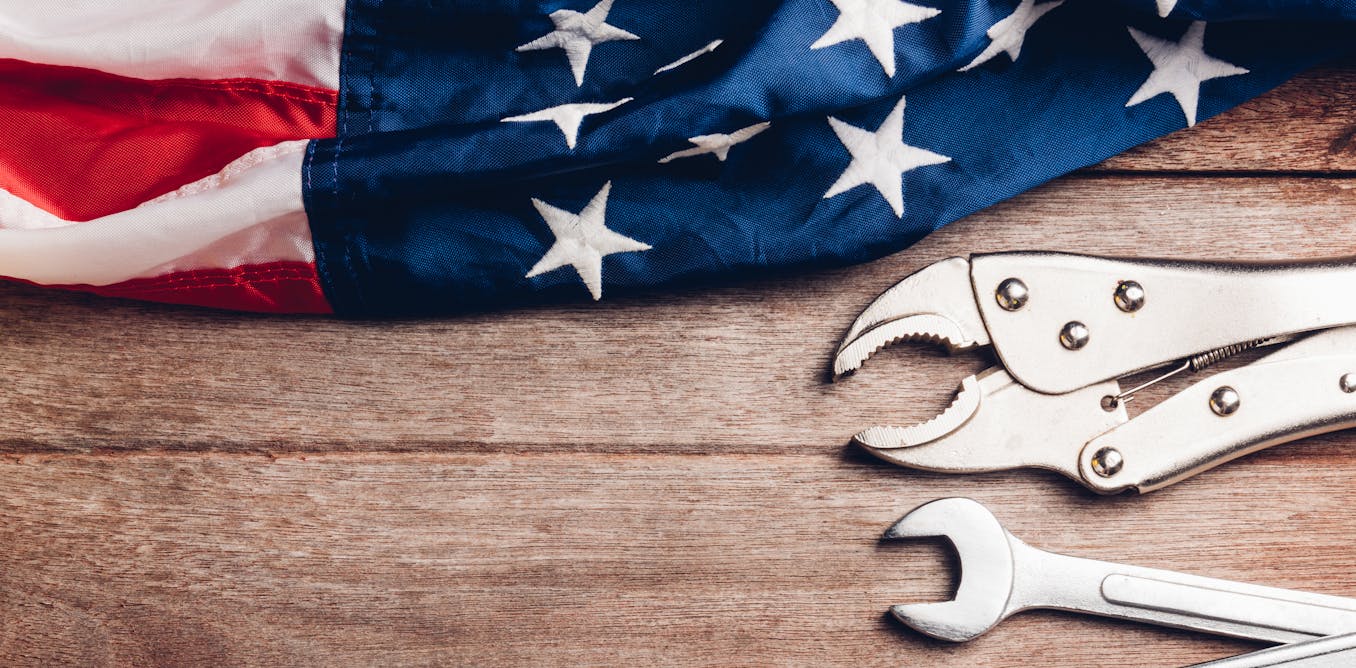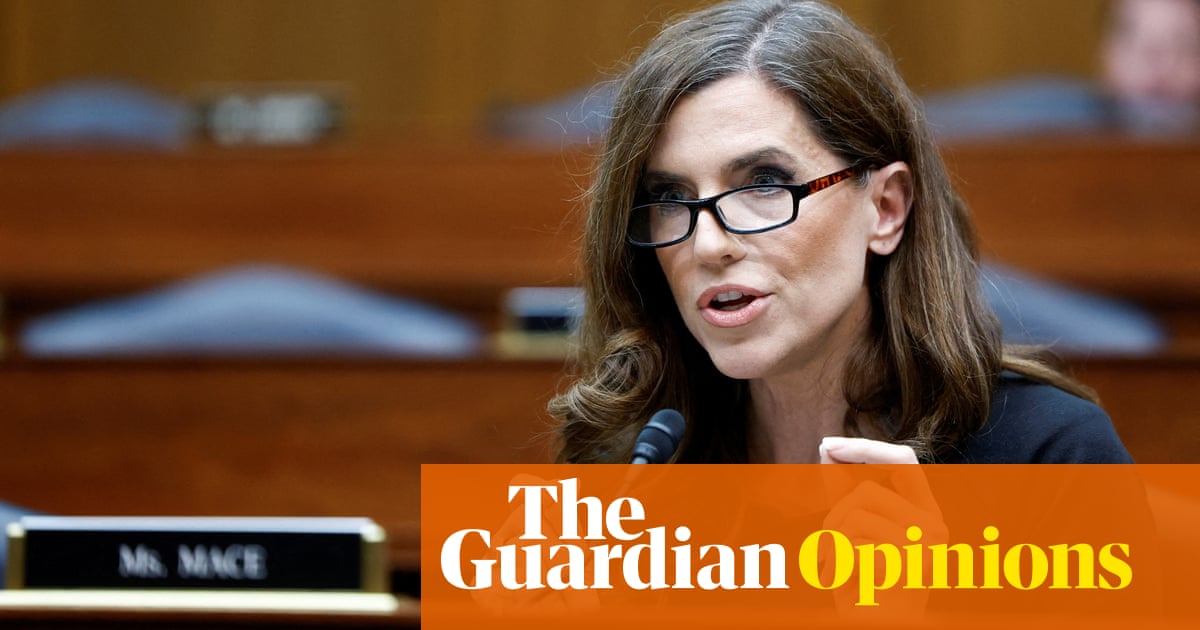In a Pennsylvania suburb whose voters are coveted by both Donald Trump and Kamala Harris, Nicole Ruscitto walked from house to house on a gloomy Tuesday afternoon, informing residents that there is another important race in November.
“I’m Nicole, I’m running for state senate in your district,” she told voters on the doorsteps of their red brick houses in Bethel Park, a town about 30 minutes from downtown Pittsburgh, which, if yard signs and election results are any gauge, is about evenly divided between Trump and Harris supporters. “I want to go to Harrisburg to help our families.”
In a swing state that’s considered by both Trump and Harris as perhaps the most important to deciding the presidential election, Ruscitto is running for an office that receives less attention than the occupant of White House or members of Congress, yet may have far more impact on the day-to-day life of Pennsylvanians.
For three decades, Democrats have been locked out of power in the state’s general assembly. On 5 November, the party is hoping the elections of Ruscitto, a school teacher and former town councilmember, and three other candidates to the state senate will change that.
Should they wind up with control of the senate and the house of representatives – the party’s majority in the latter is just one seat – Democrats will finally be able to send Josh Shapiro, the Pennsylvania governor, a host of legislation that Republicans are currently blocking, ranging from increasing the minimum wage to abortion rights.
“If we could have that trifecta, Governor Shapiro would be able to do so many great things for the people here in Pennsylvania, and I plan on doing that 100%,” Ruscitto said in an interview at her campaign office.
While many Americans are fixated on the presidential election, there are 5,808 legislative seats in 44 states up for grabs in November, according to the National Conference of State Legislatures, and voters’ choices may be more impactful than ever before. State governments across the United States have in recent years picked up the policymaking slack from Washington DC, where partisan gridlock and uncooperative Congresses have meant successive presidents have failed to enact many of their campaign promises.
The results can be seen in the stark differences between laws in red and blue states.
Where Democrats rule, governors have enacted laws to protect abortion access, cut down on emissions tied to climate change, curb gun violence and streamline the process to cast ballots. Republican-led states, meanwhile, have banned abortion to varying degrees, targeted gender-affirming care for transgender youths, restricted cities from passing gun control measures and expanded the role of religion in public education.
Many states have legislatures and governor’s mansions controlled by the same party. A smaller group of states, including Wisconsin, Kansas and North Carolina, have governors of one party and legislatures controlled by the other. Pennsylvania is the only state in the union where the two houses of the general assembly are held by different parties.
Considered a part of Democrats’ “blue wall” along the Great Lakes, the Keystone state has supported the party’s presidential candidates in most recent elections, though this year’s polls show Trump and Harris essentially tied. Democrats have also seen victories at the state level with the election of Shapiro and the US senator John Fetterman in 2022.
But control of the general assembly has eluded them since 1994. John J Kennedy, a political science professor at West Chester University and an expert on the state legislature, credited that to a push by Republicans to draw district maps in their favor, as well as Democratic voters’ tendency to be clustered in states’ urban areas.
“Democrats are at a natural disadvantage when it comes to the geography of a state like Pennsylvania, because they waste more votes,” he said. “Democrats are so concentrated, they’re at a sort of a natural disadvantage when it comes to accumulating a majority of seats.”
The tide began to turn two years ago, when Democrats barely took control of the house in midterm elections that saw the party perform far better than expected nationwide, fueled by voters’ outrage at the US supreme court for overturning Roe v Wade. But Republican control of the state senate has meant many of their legislative ambitions – including a bill intended to protect abortion seekers in the state, where the procedure is legal up until about 24 weeks of pregnancy – have gone nowhere.
Vincent Hughes, a Democratic senator who is the campaign chair of the Pennsylvania senate Democratic campaign committee, said he believes more voters are aware of the importance of legislative races, citing Trump’s attempts to get Republicans in Pennsylvania and other swing states to go along with his plan to block Joe Biden from taking office in 2020.
“What has happened is that the importance of state legislators nationally has become much clearer in the last four or five years, and I think that will lead to more folks getting more engaged in down-ballot races at the state legislative level,” he said in an interview.
Democrats’ hopes for a majority hinge on winning purple districts around the city of Erie, the state capital Harrisburg, and two in Pittsburgh’s suburbs – including the one in its western outskirts where Ruscitto is running against incumbent Devlin Robinson. A Marine Corps veteran and businessman, Robinson unseated a Democratic officeholder four years ago and promptly signed a letter, along with many of his colleagues, encouraging the top Republicans in Congress to delay certifying Pennsylvania’s election results as part of Trump’s disproven campaign of election denialism.
-
Don’t miss important US election coverage. Get our free app and sign up for election alerts
Ruscitto hopes her emphasis on cost-of-living issues and personal experience as a teacher, as well as attacks on Robinson for voting for a state constitutional amendment that could be used to curb abortion access, will give her an edge.
“We have the lowest minimum wage, and it sits in our state senate, and it’s not getting passed. And, to me, that’s absurd,” she said.
Residents of the district say Robinson has been stepping up his outreach to constituents as election day approaches. Joyce Reinoso, a retired teacher and campaigner for candidates who backs organized labor and public education, said he also has the power of incumbency.
“I don’t care what party, it’s always harder to beat the incumbent because the name recognition, if nothing else,” she said.
The Ruscitto campaign’s internal polling has found her leading Robinson by a mere two percentage points, within their survey’s margin of error. This week, the University of Virginia’s center for politics rated Pennsylvania’s house as a toss-up, but said the GOP has the edge in keeping the senate.
In Bethel Park, which was briefly thrust into the national spotlight in July when a man from the town tried to kill the former president, houses with Trump yards signs and flags sit across the street from those backing Harris, and the two candidates’ ads are ubiquitous online and on television. But signs for Ruscitto and Robinson are relatively scarce – as are strong opinions.
As she sat down for an early dinner at Ma and Pop’s Country Kitchen, Sandy Messiner, a retired bookkeeper, expressed no doubts about voting for Trump again.
“If Trump gets in, my investments will go up. We need a businessman to run this country,” the 70-year-old said. And though she knew less about them, she planned to vote for all the other Republicans on the ballot.
“I don’t care who gets in as long as they’re Republican.”
Sitting at the other end of the counter was Pam Cirucci, an 83-year-old retired nurse who was sure she would not be voting for Trump, because “he doesn’t respect females”.
A former Republican, Cirucci was less concerned with who controlled the legislature – or what the lawmakers in Harrisburg were up to at all.
“There are so many things that are more important,” she said.

 German (DE)
German (DE)  English (US)
English (US)  Spanish (ES)
Spanish (ES)  French (FR)
French (FR)  Hindi (IN)
Hindi (IN)  Italian (IT)
Italian (IT)  Russian (RU)
Russian (RU)  4 weeks ago
4 weeks ago
























Comments